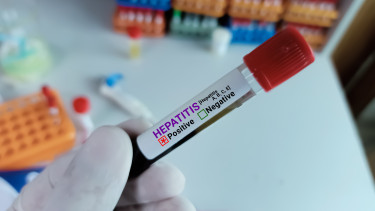WHO: Covid surge in Europe 'deeply worrying' as vaccination slows

Dr Hans Kluge, regional director of WHO Europe, told reporters that as summer comes to an end, the epidemiological picture across the 53 countries it monitors "is mixed" with a "greater than 10% increase in 14-day case incidence."
This high transmission is deeply worrying, particularly in the light of low vaccination uptake in priority populations in a number of countries
, he said.
Last week, the University of Washington's Institute for Health Metrics and Evaluation (IHME) projected that
a further 236,000 people could lose their lives to the pandemic across Europe by 1 December.
Kluge has today labelled this forecast as "reliable".
He stressed that the three priorities of the WHO remain unchanged:
- increase vaccine manufacturing capacities;
- distribute vaccines fairly;
- strengthen the acceptance of vaccines and people's willingness to get inoculated.
Only 6% of people in the lower and lower-middle-income countries in the Balkans, the Caucasus, and the Central Asian countries, are fully vaccinated with only one in ten healthcare professionals having completed a full vaccination course in some countries, Euronews reported.
Kluge also emphasised that "vaccine skepticism and science denial is holding us back from stabilising this crisis" as slow vaccine uptake could boost cases and deaths and lead to the emergence of new variants of concern.
He underlined that taking up the third doses is not a luxury, and although these shots may be taken away from people waiting for their first dose, the only way to guarantee the safety of the most vulnerable groups is via the second booster doses.
He pointed out that the surge in COVID-19 cases and deaths can be traced back to the lifting of lockdown measures and the increase in summer travel. The load on hospitals has already increased in a lot of countries in Europe, he said.
Vaccination of teachers and children would be important
The end of the summer in Europe also means the beginning of a new school year. Kluge called for schools to be reopened, underlining how their closure had impacted children's mental health and future livelihood.
"Our children have suffered greatly over the past 20 months, especially those who were already vulnerable and or could not benefit from digital ways of teaching. Unlike a year ago, we are now in a position to keep them safe," he said.
He urged nations to implement vaccination strategies for teachers, other school personnel and children over the age of 12, especially if they have underlying conditions.
He also advised schools to take other measures including social distancing, masks, and regular testing of staff and pupils.
Cover photo: Sean Gallup/Getty Images










